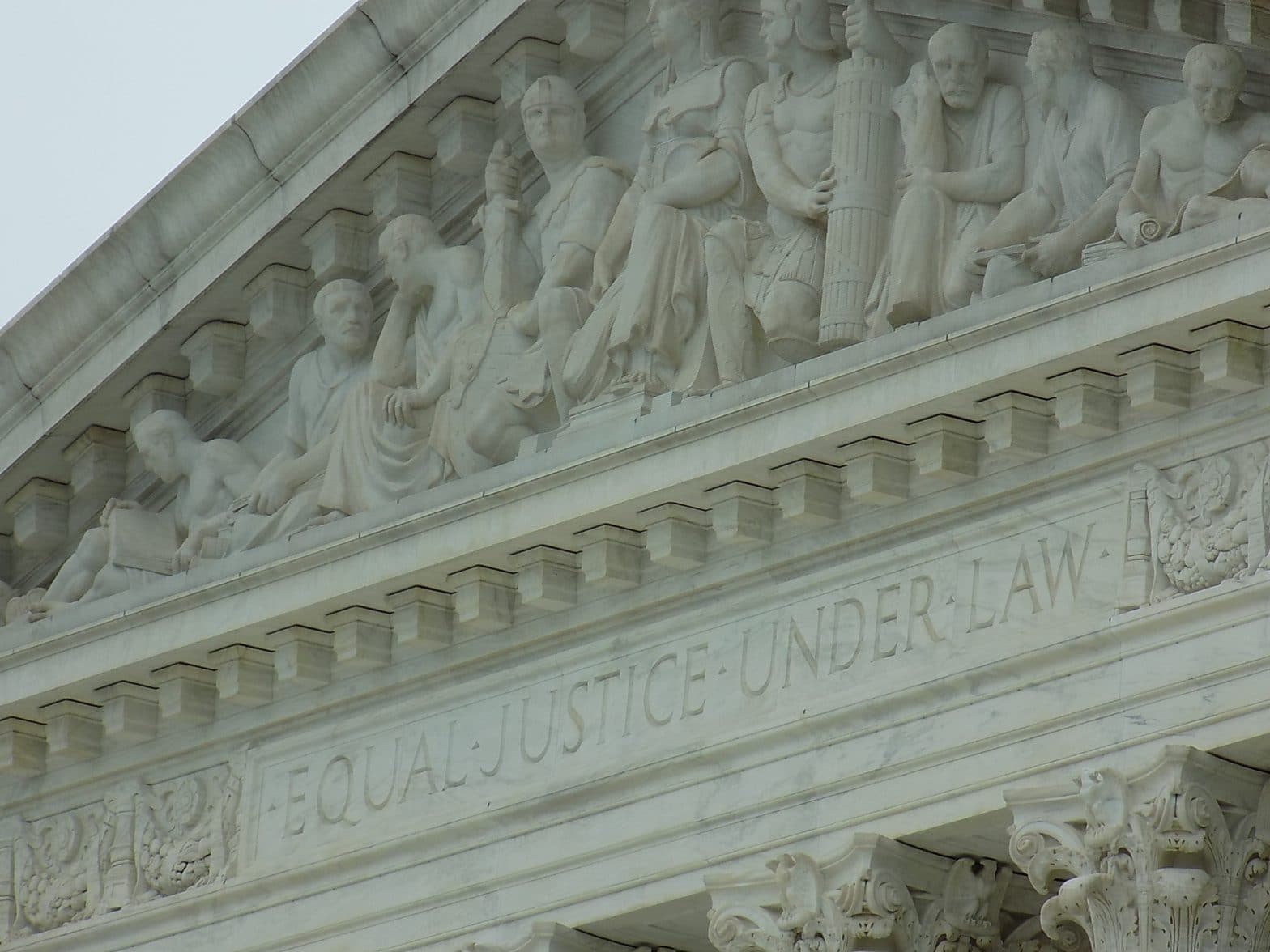Supreme Court Rules States Can Penalize Faithless Electors

WASHINGTON – The U.S. Supreme Court ruled Monday that so-called faithless electors can be penalized if they renege on their pledge to vote for their state voters’ choice for president.
Writing for a nearly unanimous court, Justice Elena Kagan began with a summation of the electoral process, explaining that Americans vote for a presidential candidate, but their votes actually choose members of the electoral college, who are appointed based on the popular returns and then choose the president.
“Today we consider whether a state may also penalize an elector for breaking his pledge and voting for someone other than the presidential candidate who won his state’s popular vote,” Kagan said. “We hold that a state may do so.”
Kagan was joined in her opinion by Chief Justice John Roberts and Justices Ruth Bader Ginsburg, Stephen Breyer, Samuel Alito Jr., Sonia Sotomayor, Neil Gorsuch and Brett Kavanaugh.
Justice Clarence Thomas wrote a separate concurrence in the case, which Gorsuch joined in part.
The decision is significant because the 2016 presidential election saw a total of 10 electors vote for someone other than their state’s chosen candidate, raising the possibility that faithless electors voting en masse could potentially swing the outcome of an election.
The consolidated case before the court came from Washington State and Colorado. The court ruled on the Washington case, then ruled on the second case as a per curiam decision.
In the Washington case, three electors — Peter Chiafalo, Levi Guerra, and Esther John — violated their pledges to support Hillary Clinton in the 2016 presidential election.
In response, the state fined the electors $1,000 each for breaking their pledges to support the same candidate its voters had.
The Electors challenged their fines in state court, arguing that the Constitution gives members of the Electoral College the right to vote however they please. The Washington Superior Court rejected that claim, and the State Supreme Court affirmed, relying on the U.S. Supreme Court ruling in Ray v. Blair.
In Ray, the High Court upheld a pledge requirement – though one without a penalty to back it up. Ray held that pledges were consistent with the Constitution’s text and the nation’s history, but it reserved the question whether a state could enforce that requirement through legal sanctions.
Critical to Monday’s ruling is Article II, §1 of the Constitution, which gives the states the authority to appoint electors “in such Manner as the Legislature thereof may direct.”
The Supreme Court has long described this clause as “conveying the broadest power of determination” over who becomes an elector.
“The Constitution is barebones about electors,” Kagan explained. “Article II includes only the instruction to each State to appoint, in whatever way it likes, as many electors as it has Senators and Representatives (except that the state may not appoint members of the Federal Government).
“The Twelfth Amendment then tells electors to meet in their States, to vote for president and vice president separately, and to transmit lists of all their votes to the President of the Senate for counting. Appointments and procedures and … that is all,” she said.
Kagan goes on to note the power to appoint an elector includes power to condition that appointment, absent some other constitutional constraint, “And nothing in the Constitution expressly prohibits states from taking away presidential electors’ voting discretion as Washington does.”
Throughout the life of the case, the electors and their supporters argued that Article II’s use of the term “electors” and the Twelfth Amendment’s requirements that electors “vote,” and that they do so “by ballot,” established that they must have discretion in their actions.
Kagan rejected that rationale, holding that “The Electors’ constitutional claim has neither text nor history on its side.”
“Even assuming other framers shared that outlook, it would not be enough,” she wrote.
“Whether by choice or accident, the framers did not reduce their thoughts about electors’ discretion to the printed page.”
Their “sparse instructions,” Kagan said, “took no position on how independent from—or how faithful to—party and popular preferences the electors’ votes should be.
“On that score, the Constitution left much to the future. And the future did not take long in coming. Almost immediately, presidential electors became trusty transmitters of other people’s decisions,” she concluded.























